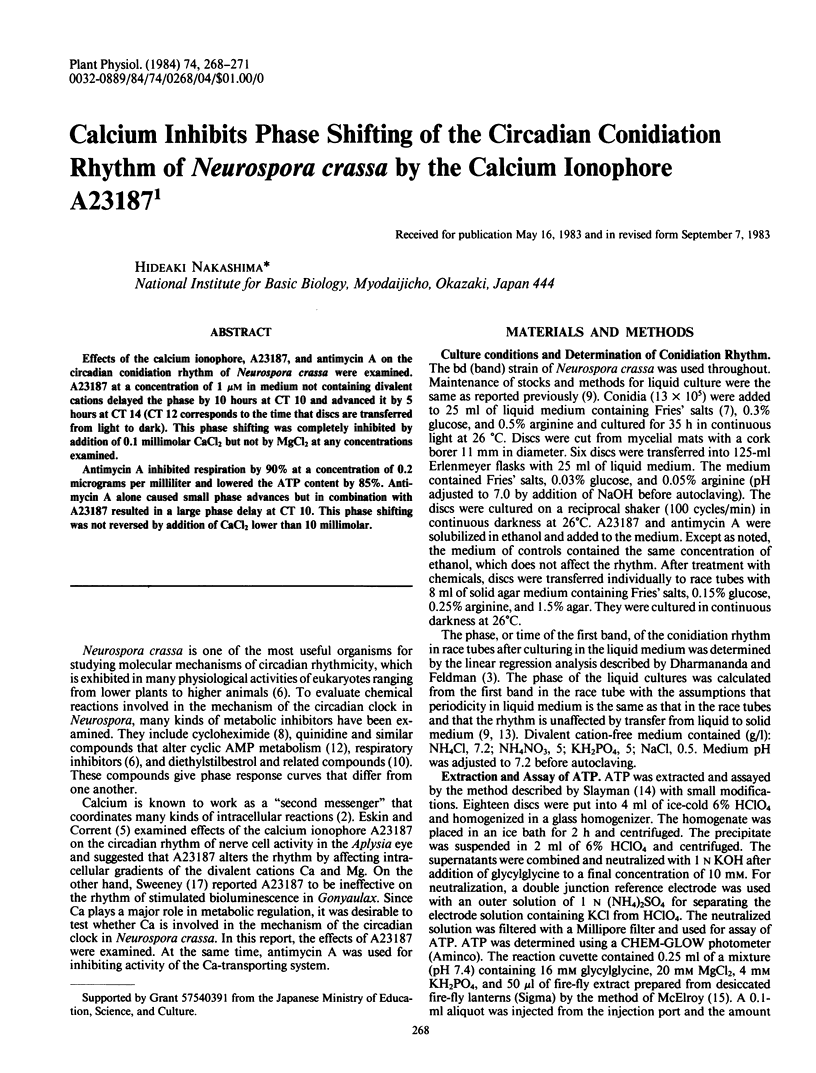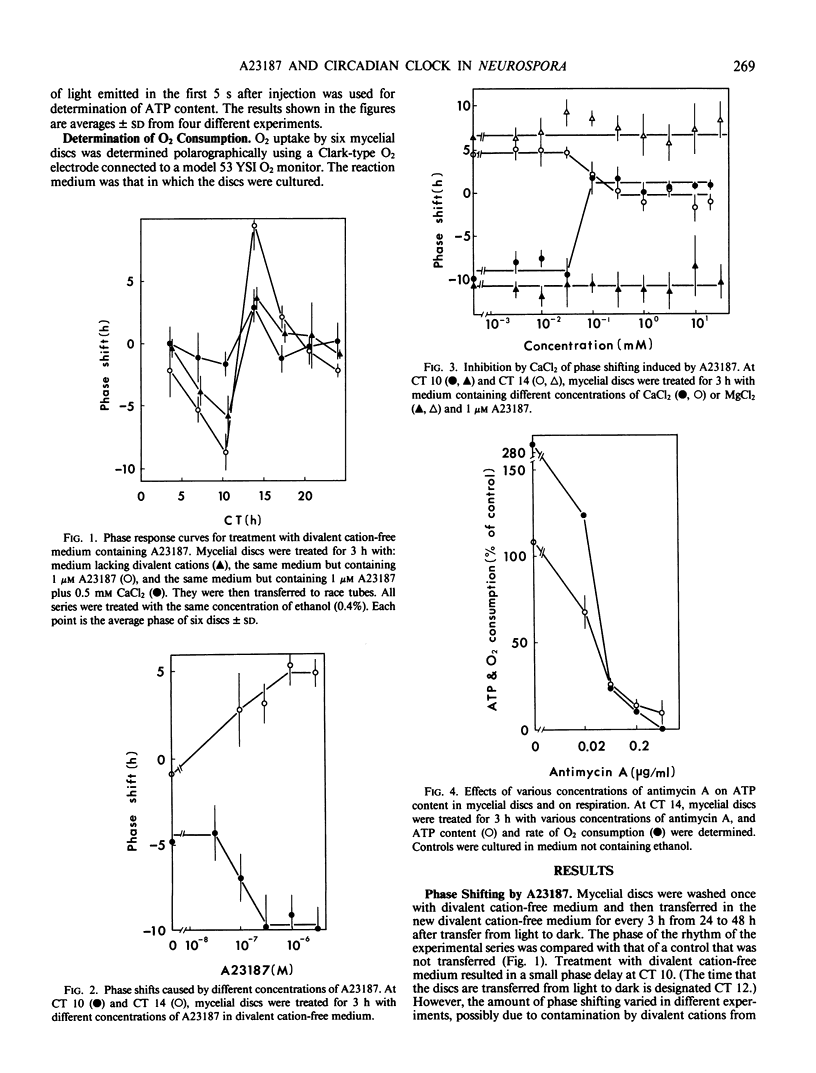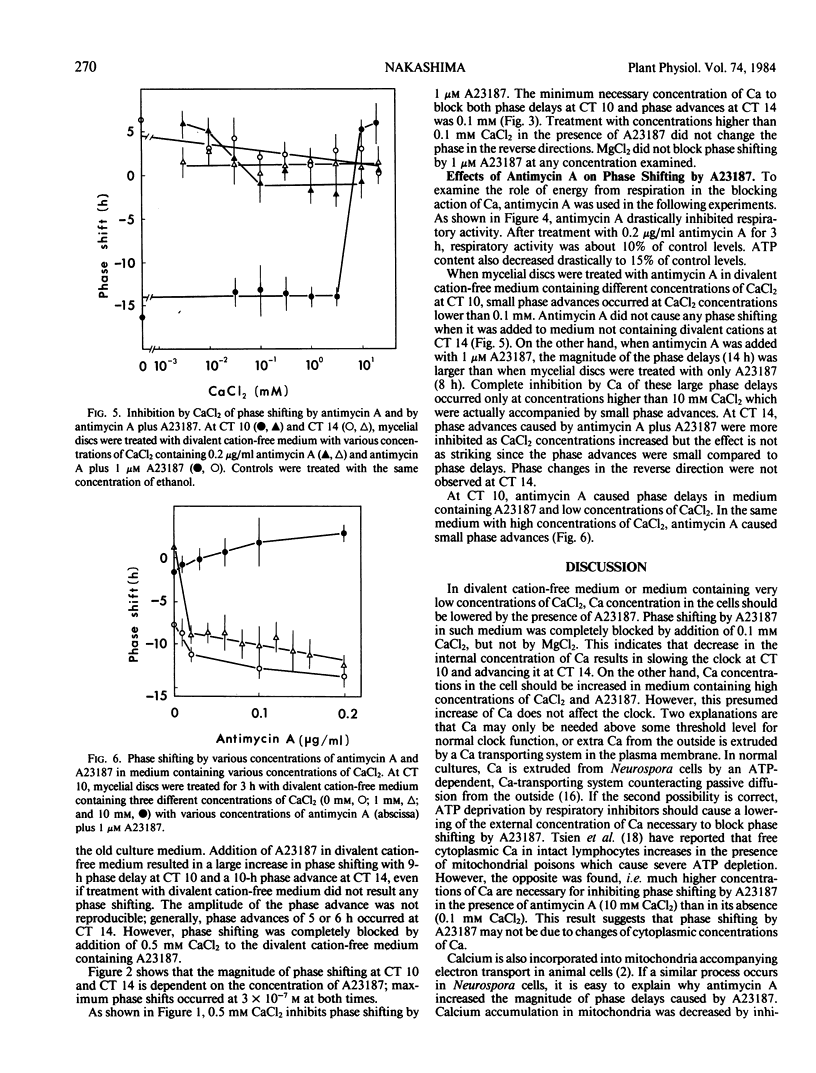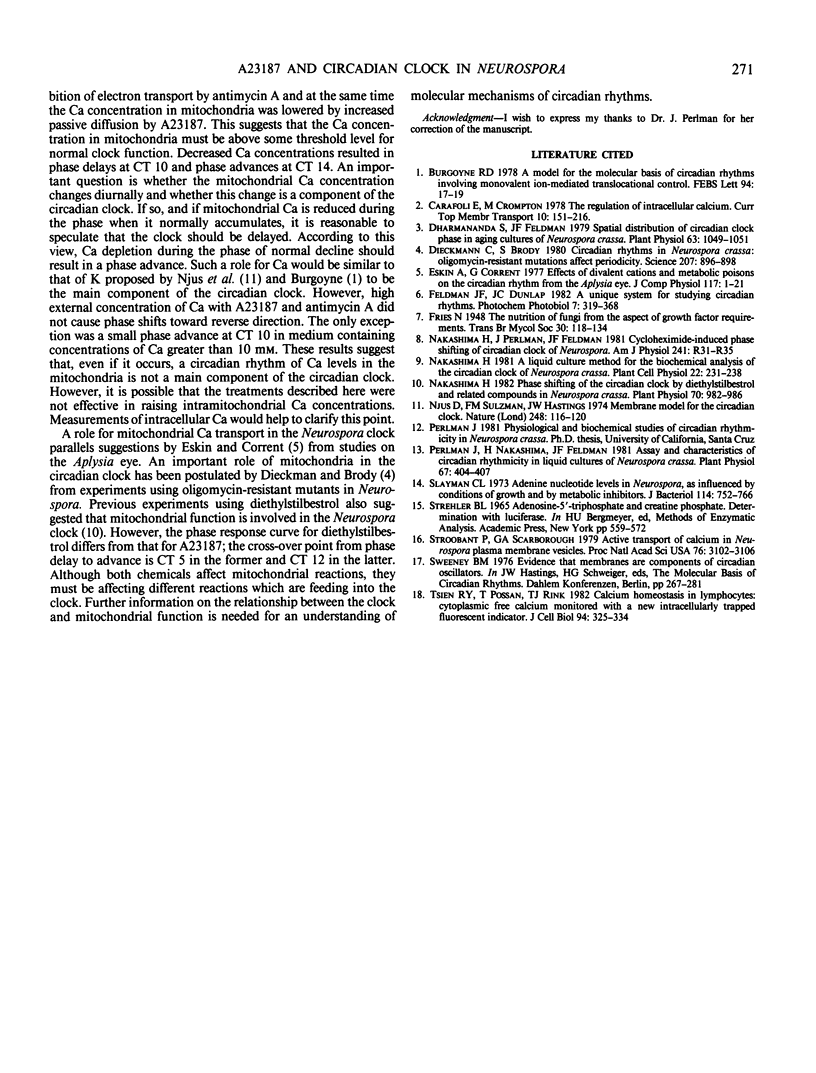Abstract
Effects of the calcium ionophore, A23187, and antimycin A on the circadian conidiation rhythm of Neurospora crassa were examined. A23187 at a concentration of 1 μm in medium not containing divalent cations delayed the phase by 10 hours at CT 10 and advanced it by 5 hours at CT 14 (CT 12 corresponds to the time that discs are transferred from light to dark). This phase shifting was completely inhibited by addition of 0.1 millimolar CaCl2 but not by MgCl2 at any concentrations examined.
Antimycin A inhibited respiration by 90% at a concentration of 0.2 micrograms per milliliter and lowered the ATP content by 85%. Antimycin A alone caused small phase advances but in combination with A23187 resulted in a large phase delay at CT 10. This phase shifting was not reversed by addition of CaCl2 lower than 10 millimolar.
Full text
PDF



Selected References
These references are in PubMed. This may not be the complete list of references from this article.
- Burgoyne R. D. A model for the molecular basis of circadian rhythm involving monovalent ion-mediated translational control. FEBS Lett. 1978 Oct 1;94(1):17–19. doi: 10.1016/0014-5793(78)80896-5. [DOI] [PubMed] [Google Scholar]
- Dharmananda S., Feldman J. F. Spatial Distribution of Circadian Clock Phase in Aging Cultures of Neurospora crassa. Plant Physiol. 1979 Jun;63(6):1049–1054. doi: 10.1104/pp.63.6.1049. [DOI] [PMC free article] [PubMed] [Google Scholar]
- Diekmann C., Brody S. Circadian rhythms in Neurospora crassa: oligomycin-resistant mutations affect periodicity. Science. 1980 Feb 22;207(4433):896–898. doi: 10.1126/science.6444467. [DOI] [PubMed] [Google Scholar]
- Nakashima H. Phase Shifting of the Circadian Clock by Diethylstilbestrol and Related Compounds in Neurospora crassa. Plant Physiol. 1982 Oct;70(4):982–986. doi: 10.1104/pp.70.4.982. [DOI] [PMC free article] [PubMed] [Google Scholar]
- Njus D., Sulzman F. M., Hastings J. W. Membrane model for the circadian clock. Nature. 1974 Mar 8;248(5444):116–120. doi: 10.1038/248116a0. [DOI] [PubMed] [Google Scholar]
- Perlman J., Nakashima H., Feldman J. F. Assay and Characteristics of Circadian Rhythmicity in Liquid Cultures of Neurospora crassa. Plant Physiol. 1981 Mar;67(3):404–407. doi: 10.1104/pp.67.3.404. [DOI] [PMC free article] [PubMed] [Google Scholar]
- Slayman C. L. Adenine nucleotide levels in Neurospora, as influenced by conditions of growth and by metabolic inhibitors. J Bacteriol. 1973 May;114(2):752–766. doi: 10.1128/jb.114.2.752-766.1973. [DOI] [PMC free article] [PubMed] [Google Scholar]
- Stroobant P., Scarborough G. A. Active transport of calcium in Neurospora plasma membrane vesicles. Proc Natl Acad Sci U S A. 1979 Jul;76(7):3102–3106. doi: 10.1073/pnas.76.7.3102. [DOI] [PMC free article] [PubMed] [Google Scholar]
- Tsien R. Y., Pozzan T., Rink T. J. Calcium homeostasis in intact lymphocytes: cytoplasmic free calcium monitored with a new, intracellularly trapped fluorescent indicator. J Cell Biol. 1982 Aug;94(2):325–334. doi: 10.1083/jcb.94.2.325. [DOI] [PMC free article] [PubMed] [Google Scholar]


